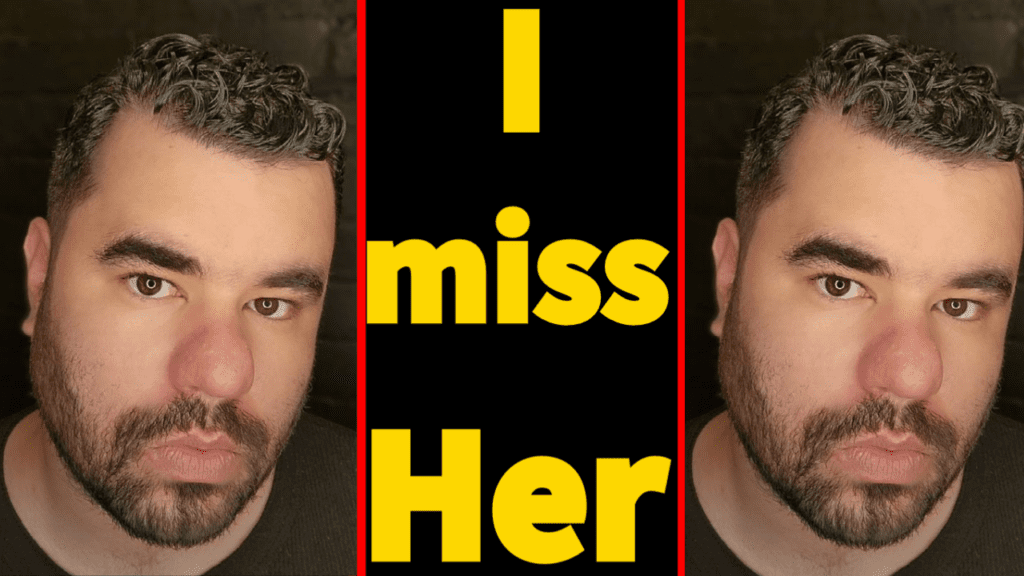
It is not uncommon for people to have negative thoughts or feelings about love, particularly if they have had past experiences that have been hurtful or disappointing. However, it is important to remember that everyone’s journey with love is unique and that it’s possible to have positive experiences in the future.
It’s also important to remember that love is not just about romantic relationships. Love can also be found in friendships, family relationships, and even in one’s relationship with oneself. Self-love and self-care are important aspects of overall well-being and can improve one’s ability to form and maintain healthy relationships.
Additionally, it is important to understand that love is not something that can be forced or controlled, it is something that develops naturally over time, and it’s possible that you haven’t met the right person yet.
If you feel that you are struggling with negative thoughts or emotions related to love, it may be helpful to talk to a therapist or counselor. They can provide a safe and supportive space to explore your thoughts and feelings, and help you to develop a more positive perspective on love and relationships.
Here are some reasons why you feel that love is not meant for me:
1) Past experiences.
Past experiences can have a significant impact on our thoughts, feelings, and behaviors in current and future relationships. If you have had past experiences that have been hurtful or disappointing, it can be difficult to trust others or to believe that you are deserving of love and happiness.
It’s important to understand that past experiences do not define you and that it’s possible to have positive experiences in the future. However, it can be helpful to process and understand past experiences and the emotions that come with them.
A therapist or counselor can help you to explore your past experiences, understand how they are impacting your present and future, and provide strategies to move forward. They can also help you to develop healthier coping mechanisms and communication skills to navigate future relationships.
Remember that healing takes time and patience. It’s a process and you may experience setbacks, but with time and effort, you can learn to let go of the past and build healthy, positive relationships in the future.
2) Fear of rejection.

Fear of rejection is a common concern, and it can make it difficult to form and maintain relationships. The fear of rejection can stem from past experiences, low self-esteem, or a belief that one is not good enough. This fear can manifest in different ways, such as difficulty in initiating or maintaining relationships, avoiding social situations, or being overly passive or aggressive in interactions.
Here are some strategies that can help to manage the fear of rejection:
a. Challenge negative thoughts: Identify negative thoughts and beliefs about yourself, and challenge them with evidence to the contrary.
b. Build self-esteem: Practice self-care and self-compassion, and engage in activities that make you feel good about yourself.
c. Take small steps: Start small by initiating interactions with people you feel comfortable with, and gradually work your way up to more challenging situations.
d. Learn to accept rejection: Remember that rejection is a normal part of life and that it’s not a reflection of your worth as a person.
e. Seek professional help: A therapist or counselor can help you to understand the underlying causes of the fear of rejection and provide strategies to manage it.
3) Low self-esteem.
Low self-esteem can have a significant impact on one’s thoughts, feelings, and behaviors. People with low self-esteem may feel inadequate, worthless, or not good enough. They may compare themselves to others and find themselves falling short. They may also have a negative internal dialogue and be overly critical of themselves. Low self-esteem can make it difficult to form and maintain relationships, as well as affect one’s ability to succeed in different areas of life.
Here are some strategies that can help to improve self-esteem:
a. Challenge negative thoughts: Identify negative thoughts and beliefs about yourself and challenge them with evidence to the contrary.
b. Practice self-compassion: Be kind and understanding towards yourself and avoid self-criticism.
c. Accomplish goals: set and achieve small and big goals, it will help you to feel more in control of your life and increase self-confidence.
d. Surround yourself with positive people: Spend time with people who are supportive and who believe in you.
e. Seek professional help: A therapist or counselor can help you to understand the underlying causes of low self-esteem and provide strategies to improve it.
4) Lack of role models.
A lack of role models can make it difficult to develop positive relationships and communication skills. Role models can serve as examples of healthy relationships and communication and can provide guidance and inspiration on how to navigate relationship challenges.
Here are some strategies that can help if you lack role models in your life:
a. Seek out positive examples: Look for positive examples of relationships and communication in books, movies, TV shows, and online resources.
b. Learn from others: Seek out people in your life who have healthy relationships and communication skills and ask for their advice and guidance.
c. Find a mentor: Consider finding a mentor who can provide guidance and support in developing your communication and relationship skills.
d. Read about it: Educate yourself about healthy relationships and communication by reading books, articles, and online resources.
e. Professional help: A therapist or counselor can provide guidance and support in developing positive relationships and communication skills.
5) Trauma.
Trauma can have a significant impact on one’s ability to form and maintain relationships. Trauma can refer to a wide range of experiences, such as physical, emotional, sexual, or psychological abuse, neglect, loss, or natural disasters. Trauma can affect how one perceives oneself, others, and the world around them. Trauma can lead to feelings of mistrust, fear, anger, guilt, shame, and other negative emotions that can make it difficult to form and maintain healthy relationships.
Here are some strategies that can help to manage the effects of trauma on relationships:
a. Seek professional help: A therapist or counselor who is trained in treating trauma can help you to process and cope with your traumatic experiences, as well as provide strategies for managing its effects on relationships.
b. Practice self-care: Engage in activities that promote self-care, such as exercise, healthy eating, and getting enough sleep.
c. Build a support system: Surround yourself with supportive people who can provide emotional support, understanding, and encouragement.
d. Learn coping skills: Learn coping skills such as mindfulness, relaxation techniques, and positive self-talk to manage stress and negative emotions.
e. Be patient with yourself: Remember that healing from trauma takes time, and it is important to be patient and kind to yourself throughout the process.
6) Societal pressure.
Societal pressure can have a significant impact on one’s thoughts, feelings, and behaviors related to relationships and communication. Societal expectations and norms can influence how we perceive ourselves, others, and relationships. These pressures can include expectations around gender roles, relationship dynamics, communication styles, and more.
Societal pressure can lead to feelings of inadequacy, self-doubt, and difficulty in forming and maintaining relationships. It can also make it hard to express one’s true self and communicate authentically.
Here are some strategies that can help to manage the effects of societal pressure on relationships and communication:
a. Challenge societal expectations: Reflect on societal expectations and norms, and question whether they align with your values, beliefs, and what feels authentic for you.
b. Be true to yourself: Prioritize authenticity over societal expectations, and communicate in a way that feels true to you.
c. Educate yourself: Learn about different relationship styles, communication strategies, and societal expectations to gain a better understanding of what works best for you.
d. Build a support system: Surround yourself with people who support and accept you for who you are, rather than those who reinforce societal pressure.
e. Seek professional help: A therapist or counselor can help you to understand the underlying causes of societal pressure and provide strategies to manage it.
Ways to still feel loved when you’re not “in love”…
Here are three ways to still feel loved when you’re not “in love”:
1) Cultivate self-love: Practice self-care, and self-compassion and focus on your own needs and well-being. This can help you to feel more confident and secure in yourself, which can lead to feeling loved.
2) Connect with friends and family: Surround yourself with people who care about you and make an effort to strengthen those relationships. Spending time with people you care about can help you to feel supported and loved.
3) Engage in activities you enjoy: Engage in activities that bring you joy and fulfillment, such as hobbies, volunteer work, or pursuing your passions. These activities can help you to feel more fulfilled and can lead to feeling loved.


